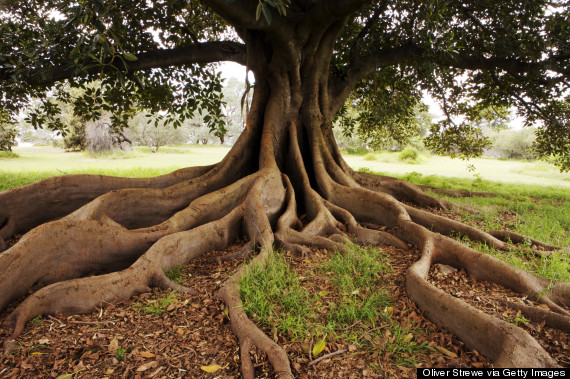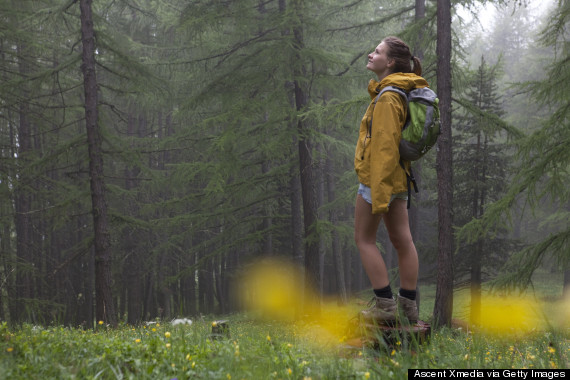
While we grew up frolicking through fields, swinging at the park and cruising along on our bikes, as adults, many of us spend most of our time indoors. But all of those hours spent outside were actually good for more than using up our unlimited, childhood energy. As it turns out, science shows that some fresh air really will do you good.
Fresh air saves lives.
Just like you learned in elementary school, trees use photosynthesis to turn carbon dioxide into the oxygen we need to breathe. In just one year, the presence of trees saved 850 lives and prevented 670,000 cases of acute respiratory symptoms, according to new research published in the journal Environmental Pollution. Trees remove pollution from the air, making it healthier for us to take into our lungs. According to the research, the fresh air created by trees is especially beneficial to those living in urban areas, where the air is more heavily polluted.
Air pollution can create some major health problems. Highly polluted air has been shown to cause a burning effect in eyes, noses and throats. Polluted air also makes it harder for those with asthma to breathe. Some toxic chemicals that can live in the air -- like benzene and vinyl chloride -- are highly toxic. They can even cause cancer, birth defects, long term injury to the lungs, as well as brain and nerve damage. Breathing fresh air that plants produce lowers the chances of coming into contact with these scary pollutants.
It can boost your immune system.
It may be time to step outside if you find yourself cooped up with tons of other people at your office, or even in your own home. Such close quarters exposes you to all sorts of germs. Plus, even a simple walk outside can raise your immune system. "Exercise leads to an increase in natural killer cells, neutrophils and monocytes, which ultimately increases immune function," Ather Ali, ND, MPH, assistant director of Complementary/Alternative Medicine Research at the Yale-Griffin Prevention Research Center tells Health.com.
The smells in fresh air bust stress and increase happiness.
Science shows that you really should stop and smell the roses, as the smell of them promotes relaxation. Other flowers, like lavender and jasmine can also lower anxiety and up your mood. Research shows that the scent of pine trees decreases stress and increases relaxation. Even walking through a park or your own backyard can help you feel calmer and happier when you catch a whiff of freshly cut grass. And while rain may put a damper on your outdoor plans, we love nothing more than the scent of a downpour, according to Smithsonian magazine. The smell reminds us of the color green and may be linked with the growth of both the plants and animals that we need to eat, which could explain why it smells so good to us.
Fresh oxygen energizes.
Back away from the energy drink. Research shows that spending time in fresh air, surrounded by nature, increases energy in 90 percent of people. "Nature is fuel for the soul, " Richard Ryan, researcher and professor of psychology at the University of Rochester, tells the University of Rochester. "Often when we feel depleted we reach for a cup of coffee, but research suggests a better way to get energized is to connect with nature."